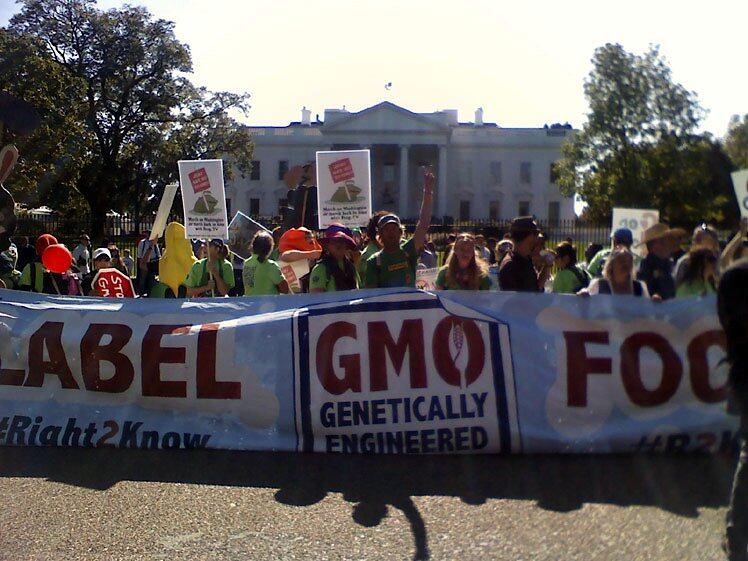The global sales of non-GMO food and beverage products reached $400 billion in 2012, a number that Packaged Facts estimates will double by 2017 at a compound annual growth rate of 15%. At that point, non-GMO products will comprise 14.5% of total food and beverage sales worldwide.
The most promising opportunity areas are in Europe, where consumers seem to largely oppose GMOs, along with the US, where the Non-GMO Project has received a backlog of verification requests from manufacturers, forcing NSF International to step in and help. But globally, consumer demand for mandatory labeling and non-GMO product options is mixed at best, and there doesn’t appear to be a trend toward widespread non-GMO labeling outside the US.
Non-GMO definition unclear
GMO labeling itself presents a challenge, as there’s no universal standard at present. For the report, author Howard Waxman defines non-GMO products as products lacking any ingredients made from crops that have been genetically modified to make them more pest resistant, as well as the absence of any animal-based products that are derived from animals that have been fed on a diet that included ingredients made from GMO crops. These products also include organics, which are by definition free of GMO-based ingredients.
But that doesn’t complete the picture. Also included are many products defined as natural—which the report dubbed largely a marketing term with few points of definition—as there are products labeled as natural that contain GMO ingredients.
A third component of the non-GMO food and beverage category are products that are neither officially classified as organic nor tagged as natural or all natural by their marketers. These products may or may not have artificial ingredients, and may or may not include organic ingredients. For example, a fruit juice made from fruit that wasn’t grown organically that used artificial coloring wouldn’t be described as natural. But as long as the coloring wasn’t from a GMO source, the product could be identifiable as non-GMO, according to the report.

Europe, US lead the non-GMO charge
Opposition to GMO foods in Europe has led international companies from Coca-Cola to Nestle to introduce non-GMO versions of their food and beverage products. In addition, many European grocery organizations are demanding grow more non-GMO crops for animal feed as consumers demand GMO-free meat options. In the US, manufacturers are being pressed to identify products that have GMO ingredients through a series of state-by-state referendums that call for mandatory labeling of these products. (But early returns on Tuesday’s I-522 measure in Washington State indicate consumers say no to GMO labeling.)
With improving economies worldwide giving rise to a growing middle class in many developing nations, demand for organic food and beverages has increased, which bodes well for non-GMO labeling, according to the report. Indeed, the CAGR for non-GMO food and beverages introduced globally between 2009 and 2013 was about 28%, with a surge in launches occurring in the 2012-13 period. Europe represented roughly seven out of 10 F&B rollouts during the period, followed (not closely) by Asia and Oceana.
Non-GMO demand not universal
Despite these positive signs for non-GMO sales growth, Only about 60 countries worldwide have mandatory GMO labeling, while 130 don’t, according to the Center for Food Safety. Outside the US, there is little indication of a trend toward an increase in the number of countries with mandatory labeling.
Some consumer surveys also indicate that while many support mandatory non-GMO labeling, there is no evidence that they would not buy products containing GMO ingredients, the report noted. Because the labeling is often nondescript for products containing GMO ingredients, the onus is on consumers to look for the information. A 2010 report from the FDA found that 54% of Americans read nutrition labels the first time they buy a product, though only 38% are interested in nutritional information aside from calorie content, and just 41% believe the labeling is accurate. A 2012 global survey by Nielsen also found that the percentage of consumers checking labels is even lower and confusion over their meaning runs high, especially in developing nations.
Global increase in GMO crops will validate, clarify non-GMO product market
GMO crops including corn and soybeans have been grown commercially for two decades, with the scientific community broadly agreeing that products of these crops are safe for human consumption and the environment. Dissenters from this position are losing ground everywhere except for Europe—as countries (especially developing nations) seek dependable crops to fight poverty and hunger.
China, Russia and Brazil are all increasing GMO crop levels, with India hesitant to fully embrace GMO crops. Even in Europe, some farmers are moving toward acceptance of GMO crops in light of the recent economic downturn. Overall, the global longterm trend appears strongly in favor of more use of GMO crops—beyond corn and soybeans to include sugarbeets and a variety of vegetables, according to Packaged Facts. The increased presence of GMOs in food will likely make consumers more comfortable with them.
While there will still be a significant portion of the global population that resists GMO foods (which marketers will be able to capitalize on with new product alternatives), at the very least the expansion of GMO crops will result in clarification and validation of the market for non-GMO products, the report noted.
